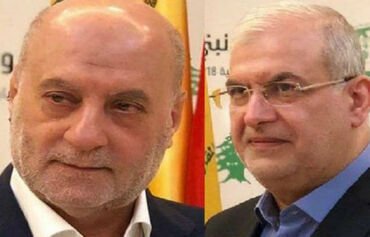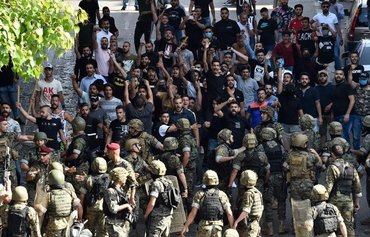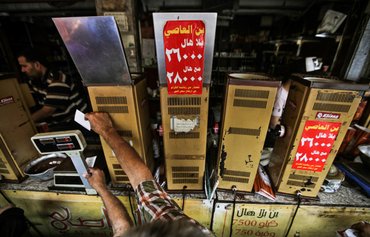As Lebanon faces ongoing political instability, Fares Souaid, former Lebanese MP and former secretary-general of the March 14th alliance, told Al-Mashareq he has been laying the groundwork for a new political movement.
The new movement will build on the momentum of a previous effort, known as the National Initiative Movement, that Souaid launched in 2017 with Lebanese politician Radwan al-Sayed in anticipation of the parliamentary elections.
Lebanon held parliamentary elections on May 6th, but a coalition government has yet to be formed.
The National Initiative Movement aimed to protect the state and the constitution, end the imbalance of power in favour of Hizbullah, and confront Iranian hegemony in Lebanon, al-Sayed told Al-Mashareq.
"Souaid's movement is necessary and I support it," he added.
The new movement will be based on the Taif Accord and the principle of Muslim-Christian co-existence, Souaid told Al-Mashareq, and "affirms Lebanon as a free, sovereign and independent country with an Arab identity and affiliation".
The 1989 Taif agreement was reached to provide the basis for ending Lebanon's civil war and the return to political normalcy in Lebanon.
The new movement seeks to demonstrate that Iran's influence "not only empties the Lebanese state of its essence, it also strikes at Muslim-Christian co-existence", Souaid said, and that "Hizbullah's weapons are what ensures Iran’s influence in Lebanon".
Iran's influence corrupts justice among the Lebanese, Souaid added, noting that one citizen bears arms and is not held accountable before the law, while another does not bear arms and is held accountable before the law.
Souaid said he will communicate with public figures, politically active youth and cross-sectarian grassroots forces who do not have representation in parliament.
"We will announce ourselves in October, and then begin communicating with political forces that believe in Lebanon," he said.
Rejection of Iran's intervention
"There is no dispute that Iran holds sway over Lebanon, and, through Hizbullah, controls many of the nodes of power and has considerable influence on the major decisions in Lebanon," journalist Ali al-Amin told Al-Mashareq.
This influence is different from that of other countries in that it is based, to a large extent, on a precept that is in conflict with the central tenants of the state, he said.
The new movement Souaid is establishing "reflects an existing reality and speaks for a large segment of the Lebanese who reject Iran’s influence", he said.
Iran's influence directly interferes with the Lebanese government, he added, as the level of influence it exerts abrogates the sovereignty of the state.
This is illustrated by Hizbullah's intervention in the Syrian war on the side of the regime, and its insistence on holding onto its weapons.
"There is a movement that rejects this," al-Amin said.
"What Souaid is trying to do reflects this reality through a political movement to affirm that confronting the Iranian influence must be a priority in any serious discussion," he added.
These sentiments have long been voiced by the March 14th forces, he said, and are an extension of their ideas on sovereignty and position on state building.
Lebanon has in recent years witnessed a sharp political division between the March 14th camp, which opposes the Syrian regime and Iranian influence, and the March 8th camp that supports it.

![A Lebanese supporter carries a Hizbullah flag during Ashura in Beirut on September 20th. [Stringer/AFP]](/cnmi_am/images/2018/10/01/14629-Lebanon-Beirut-Hizbullah-600_384.jpg)







I don't like this person and I don't trust him.
Reply1 Comment(s)